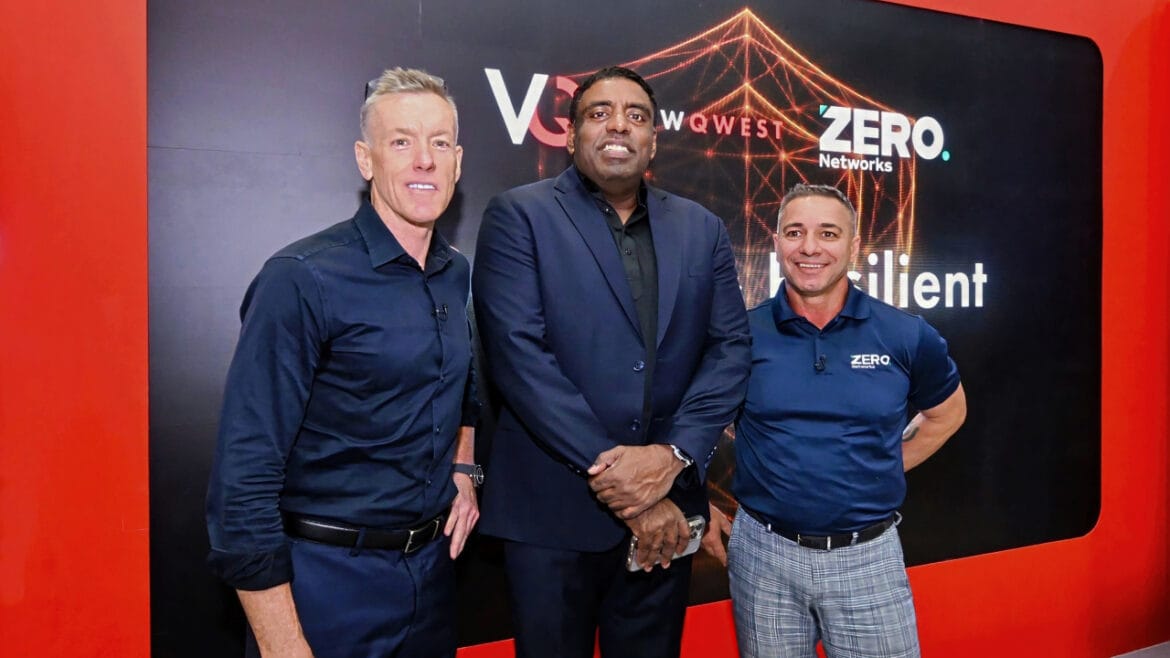It’s 2025, but cybersecurity still sits somewhere between ‘IT problem lah’ and ‘later then settle’ for most small companies.
Not exactly an ideal situation, because as cyber threats grow in scale and sophistication, enterprises across the region are under constant cyber pressure. So it’s not the big fish getting fried — everyone else is feeling the heat too.
Whenever a breach occurs, the fallout often snowballs because one infected device can lock down file servers and shared drives within hours. The problem? Most SMEs still treat their internal network as one big trusted zone, which means once the door’s open, there’s nothing to stop an intruder from moving laterally and spreading rapidly to critical assets. It’s one reason why organisations experience widespread disruption during security breaches.
Why a ‘Zero Trust’ approach to security works
Zero Trust is a widely adopted security framework to deal with security breaches. It is built on one rule: never trust anyone by default, even inside your own network. Every user, device, and system has to prove it belongs there before access is granted. It’s away of segmenting the network: even if someone breaks in, they can’t freely move from one system to another. It’s a way of containing damage instead of just trying to stop every attack at the door.
That’s the principle behind ViewQwest’s new Zero Networks-powered microsegmentation service, which secures traditional IT systems, connected devices, and cloud workloads alike.
ViewQwest makes protecting networks simple
While they’re not the only ones offering microsegmentation, ViewQwest builds comparable protection directly into its existing business connectivity service — no extra hardware, no complicated setup.
Most legacy solutions require substantial integration and deep pockets, relying on manual rule-setting, agents, and complex deployments that often take years to implement. ViewQwest’s approach stands out because it is an agentless solution that leverages native host firewalls.
The hook is short and sweet: three steps, thirty days, zero agents, zero downtime. The service automatically maps every device, learns what should talk to what, and seals off the rest. Even admin access — like remote logins to company servers — now requires a quick identity check before the system lets anyone in, using a patented ‘Multi Factor Authentication at the port’ technology for admin ports like Remote Desktop Protocols (for Windows) and Secure Shell (for servers).
Typically, companies need an IT team or expensive consultants to design and maintain those firewall rules, which are complex and can break server connections if done wrong. This is often a major challenge that is complex, costly, and operationally disruptive. ViewQwest’s managed rollout handles all that quietly in the background through the marriage of automation and deep knowledge of network topology.
Also, traditional Zero Trust projects can drag on for years and disrupt day-to-day operations. Automating it down to a 30-day managed rollout means enterprises can raise their defences without grinding business to a halt.
When security becomes an expectation
While all of this might feel like, OK, there’s a new antivirus solution in town or something, it’s addressing a higher-level problem: a way to contain the blast when prevention fails, figuratively speaking. And ignoring this issue might be commercial suicide. In Singapore, enterprises are increasingly expected to prove their resilience, moving beyond basic compliance to gain a competitive advantage with ‘top-tier’ certifications.
While Zero Trust isn’t a certification by itself, but demonstrating clear segmentation and access-control practices goes a long way in those assessments. One ransomware slip, and you’re off the vendor list. By compressing what used to be a multi-year security overhaul into a 30-day service, ViewQwest’s new offering is giving enterprises a simpler, faster path to achieving Zero Trust resilience in an era where ‘good enough’ security no longer is.
Zero Trust is a framework that used to mean zero sleep for IT teams — trust no one, verify everything. Can ViewQwest’s new offering turn it into zero guesswork?
